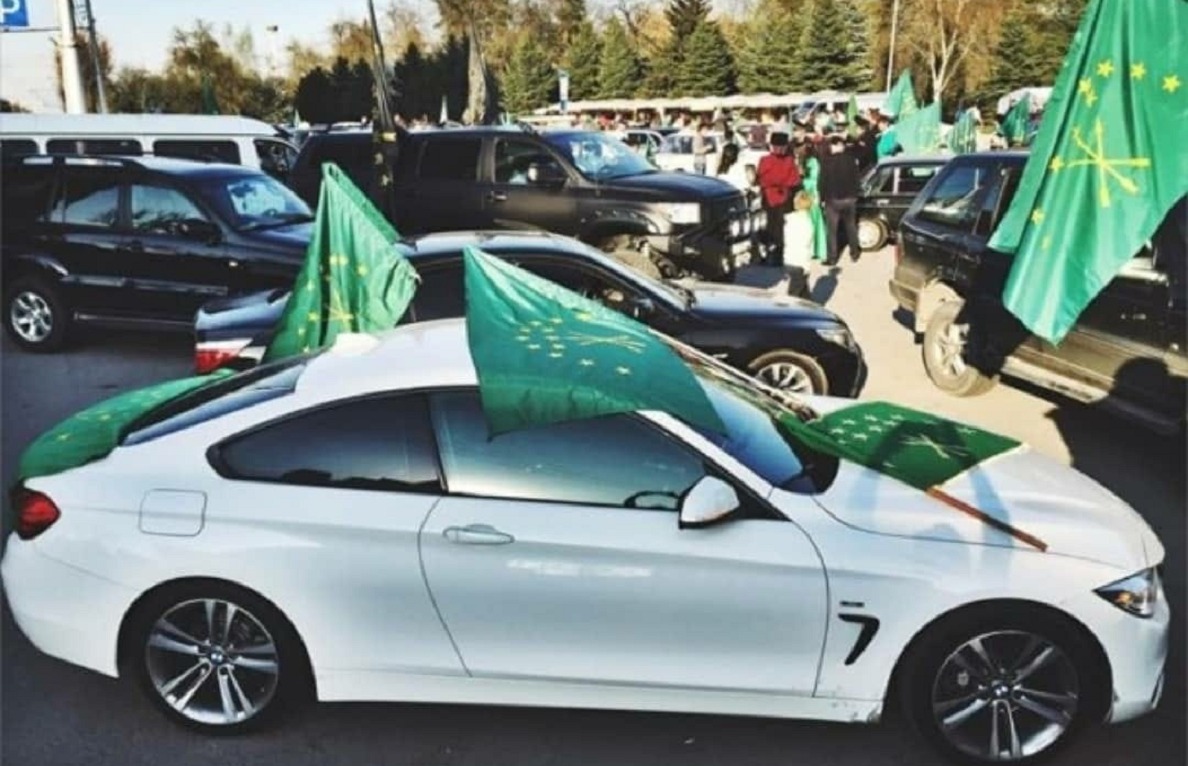

Circassian activists in the Russian Republic of Kabardino-Balkaria have claimed that police prevented drivers with Circassian flags from entering the capital Nalchik to celebrate Circassian Flag Day.
Since 2010, when the International Circassian Association first initiated the holiday, 25 April has been celebrated annually as Circassian Flag Day by Circassians living in more than 50 countries, including Russia.
This year, Circassian youth organisation Khabze posted photos and a video to their website showing security forces preventing cars decorated with Circassian flags from entering Nalchik and fining drivers.
Several participants and witnesses of the events told OC Media that on the morning of 25 April, people from across the Kabardino-Balkaria, where Circassians make up an ethnic majority, gathered in Nalchik to join the celebrations.
Witnesses claimed people travelling in cars decorated with Circassian flags were stopped by traffic police. They said that traffic inspectors, referring to an ‘order from above’, demanded people remove the Circassian symbols from their vehicles.
‘Traffic police officers stopped them, checked documents, and sometimes fined both those who entered the city and those who wanted to leave it’, the chairman of the Congress of the Kabardian People, Aslan Beshto, told OC Media.
According to Beshto, the police action lead to a large traffic jam along the Baksan Highway into Nalchik, which also included those who were not going to participate in the celebrations.
According to him, after several hours, the traffic police began to let cars with flags into the city, but pre-issued their owners with fines ‘for administrative violations’.
‘It all lasted for more than two hours’, he said.
According to Beshto, traffic police also detained motorcyclists with flags and had their motorcycles transported by tow trucks to a car park.
Alim, a witness to the events on the Baksan Highway, told OC Media that after the traffic jam had been resolved, he saw a large detachment of Russian security forces arrive in helmets and with shields and batons.
‘The likelihood of provocations’
Beshto told OC Media that social activists who were members of the organising committee for the celebration did not want to hold a motor rally this year. According to him, Khabze was the only group that wanted to continue the tradition.
According to Beshto, members of Khabze submitted an application to the city administration for permission to hold the rally but were denied.
Eldar Bore, head of the Kabardino-Balkarian branch of the Circassian Parliament’s Interregional Circassian Youth Organization, also told OC Media that the majority of the organising committee were against the auto rally.
According to him, they pointed out that every year the rally became more and more popular and in the city, where most of the roads are single-lane, this could create traffic problems.
According to Bore, some members of the organising committee also ‘pointed to the likelihood of various provocations that could lead to riots, discredit the leaders, and the very idea of the holiday’.
State media did not comment on the 25 April events.
In the evening, national dances were organised on Abkhazia Square in Nalchik.









